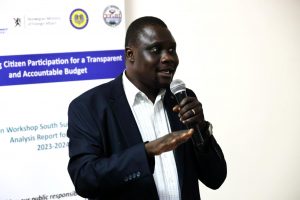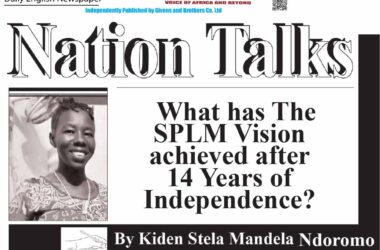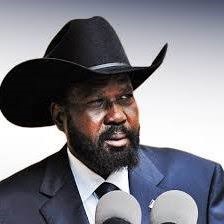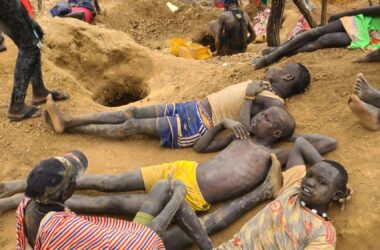By William Madouk
After failed attempts to meet US President, Joe Biden at the sideline of the UN General Assembly in New York, President Salva Kiir Mayardit tripped to the Kremlin and dinned with Vladimir Putin, with ease.
Presidents, Kiir and Putin discussed business as usual, with Russia pledging readiness to expand bilateral relations with South Sudan in areas of economy, development, trade, energy, and education.
The unanswered question is whether the West might not perceive Salva Kiir’s quick trip to Moscow as a search to fill a gap denied by Joe Biden who failed to meet the South Sudanese president in New York.
However, James Boboya, a political analyst described President Salva Kiir’s Visit to Russia as a symbolic trip to steer and shape relationships with various ideologies and geopolitical matters around the globe.
Weighing the scale of goodies from the two powers, Boboya observed only arms could be obtained from Russia, while South Sudan could get abundant benefits from the US.
“The Americans can help us in technology, …There are a lot of things that the Americans can do for us. And we can do more together with the Americans than working with Russia,” Boboya noted.

Mr. James Boboya (in picture above), is a South Sudanese policy and political analyst at the Institute of Social Policy and Research based in Juba.
He said Kiir’s visit to Moscow is a strong signal that change has begun in building equal relations with the rest of the world.
“The President’s visit to Russia is symbolic in a way that he’s trying to navigate and build relationships with different ideological and geopolitical issues in the world,” Boboya said.
“As an expert, Kiir is sending a strong message to South Sudanese that they have to be extremely careful. They have to begin making some changes in this country to build equal relationships with people in the world,” he added.
For the analyst, South Sudan needs strong relations with America, Russia, China, and the rest of the African countries, in order to survive.
“If we wanted to have a foreign policy that is participatory, inclusive, and not segregated; my advice to South Sudanese, including the President himself, is that let us not be isolated,” Boboya noted.
However, he quizzed things Russia could do for South Sudan, the value of the president’s trip and what interest does it hold, for both South Sudanese and Russian people.
He regrets that President Salva Kiir’s trip to the UN General Assembly did not bear any tangible benefit.
“Kiir went to UNGA and came back empty handed” Boboya lamented.
The analyst also cited that President Kiir’s discussing arms embargo and sanctions on individuals with Putin would not materialize, saying the only solution is for South Sudan to reform the security sector.
“So Kiir’s visit is likely to create a different issue in South Sudan and also cause tension between the members of the UN Security Council, including the Americans themselves,” he noted.
“This is where now we will be in a problem as a citizen that we’ve been put in a difficult position because of leaders who don’t understand some of the things that are going to be done based on public interest,” he continued.
He called on the president to positively engage the US to find out possible ways to amend and resuscitate blotted ties between the two countries.
“But one thing that we were not sure of, is whether Kiir’s going to Russia was to show the Americans that if you don’t want me, I can become the darling of the Russian or the darling of the Chinese,” Boboya wondered.
As South Sudan yearns for democratic governance, Mr. Boboya believes Putin’s arms can help bring tranquility to the country, and the United States of America.
“The Americans can give us support. We talk about democracy in this country, Russia is not used to elections, but Americans can help us to run our elections,” he recounted.
Boboya described the US-South Sudan relationship with citizens, as excellent, despite the sour bites between the two governments.
“The more it becomes sour, the more the government is not able to access resources coming from America. And the more it becomes complicated for the government of South Sudan to continue to govern this country,”
Some suggested that Kiir’s trip to Moscow aims to send a message to Washington about alternatives and allies.
Analysts caution that Russia’s participation in South Sudan might impair the peace process and democratic change, besides challenging US interests and influence in Africa.
President Kiir, who met his Russian counterpart for a lengthy meeting in Moscow on Thursday, sat beside his host for a press briefing where he briefly revealed the objective of his visit.
Kiir said that as a new nation, South Sudan would continue to seek friendship with various countries in which Russia is inclusive.
“We are the youngest nation in the world, and we need strong friends; you are one of them. And we do not see any alternative beside you,” Kiir said.
He stated that his visit was to cement work relations with Russia in various sectors of development as the world’s most demanded corporation among countries.
“We will work together; as the world dictates, nobody can stand alone,” he said.
Putin said the relations with South Sudan are developing positively, and “trade has increased compared to the previous year.”
“There is still much to do in several areas, including the energy sector, and further progressive development should be linked to ensuring regional security,” Putin said.
The talks between South Sudan and the Kremlin come in the wake of a renewed call from President Kiir to the UN to cancel the arms embargo imposed upon his government.




